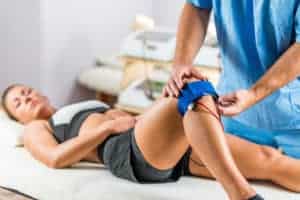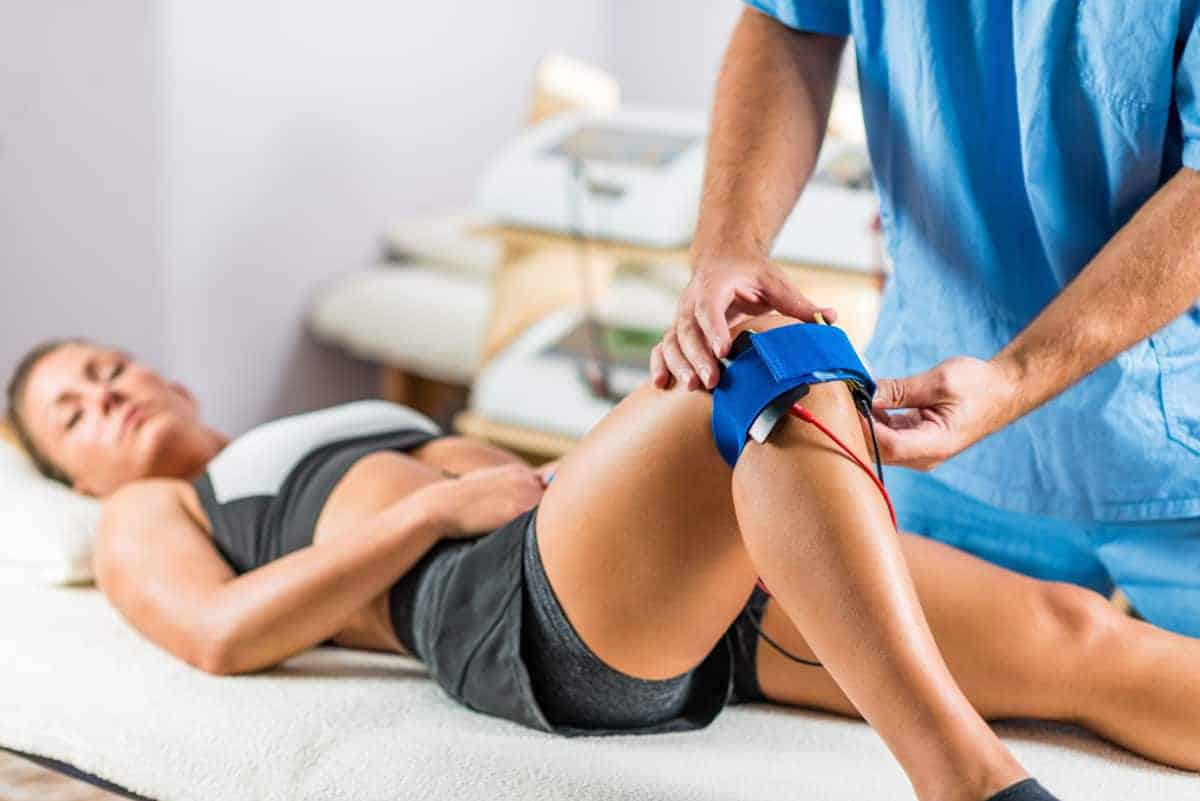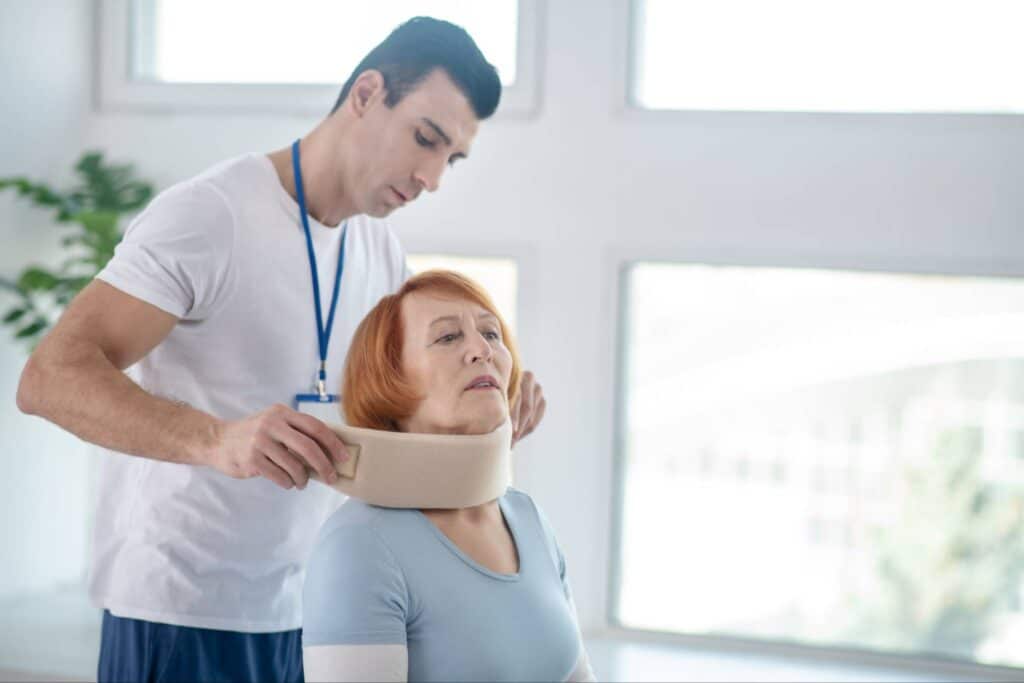 If an injury to the knee has occurred, seeking care from one of our Atlanta knee doctors or specialists should be done as soon as possible. When being evaluated by a doctor, they will examine your knee and look for swelling, ask about pain and tenderness and also look for any visible bruising.
If an injury to the knee has occurred, seeking care from one of our Atlanta knee doctors or specialists should be done as soon as possible. When being evaluated by a doctor, they will examine your knee and look for swelling, ask about pain and tenderness and also look for any visible bruising.
Mobility and range of motion will also be discussed, and the doctor will check the integrity of the knee by pushing and pulling on the joint.
Imaging tests
If an injury is suspected, the doctor may order one or more of the following imaging tests.
- An X-ray will allow the doctor to see if there are any fractures or degenerative conditions in the knee.
- A CT scan will also be able to provide the doctor with images of fractures if they are present as well as inflammation of the joint or other conditions such as gout.
- An ultrasound is used to examine the soft tissue in the knee and the surrounding areas to determine if there is any damage.
- An MRI will be ordered when doctors suspect injuries to the soft tissues in the areas of the ligaments, tendons, cartilage, or muscles.
Labs
If an infection or inflammation is suspected, a blood test may be ordered. A procedure called arthrocentesis may also be done, which is when fluid is removed from the knee and sent to the lab for evaluation.
Treatment Plans
Medications
Medications may be prescribed to help relieve the pain from conditions such as arthritis or gout.
Therapy
Physical therapy may be recommended to help strengthen the knee and the muscles that surround it to help manage the pain. Braces and supports may also be options in which you wish to explore as they can help take the pressure away from your knee or provide added protection when you need it most.
Injections
In some cases, your doctor may suggest injecting medications or other substances directly into you’re joint. Examples include:
- Corticosteroids. Injections of a corticosteroid drug into your knee joint may help reduce the symptoms of an arthritis flare and provide pain relief that may last a few months. These injections aren’t effective in all cases.
- Hyaluronic acid. A thick fluid, similar to the fluid that naturally lubricates joints, hyaluronic acid can be injected into your knee to improve mobility and ease the pain. Although study results have been mixed about the effectiveness of this treatment, relief from one or a series of shots may last as long as six months.
- Platelet-rich plasma (PRP). PRP contains a concentration of many different growth factors that appear to reduce inflammation and promote healing. These types of injections tend to work better in people whose knee pain is caused by tendon tears, sprains, or injury.
Surgery
While some injuries may require surgery, not all need it right away, and there may be other options. It is always best to discuss any concerns you may have with your doctor and find out all of the options before making a decision. Some possibilities when exploring knee surgery are:
An arthroscopic approach is when the surgeon uses a fiber-optic camera to help guide them using narrow tools to make small incisions around the knee. This technique can be done for conditions to remove loose bodies from the knee joint, or even to repair damaged cartilage.
With a partial knee replacement, small incisions are made to replace a portion of your knee. These replacements can be made of metal or plastic, and with this type of procedure, patients tend to recover much faster as this is less invasive than a total knee replacement.
A total knee replacement is where your surgeon would take away the damaged bone as well as cartilage and replace it with an artificial joint.
Self Care
Medications like ibuprofen and Aleve may work best to ease your knee pain symptoms. Some have also found that numbing agents such as lidocaine have also proven effective.
RICE Method
- Rest. If you have injured the knee, reduce strain on the knee, and rest for a day or two to minimize the symptoms.
- Ice. When using ice, pain, and inflammation can be managed. Ice packs are reasonable; however, using a bag of frozen peas wrapped in a towel is an even better option as it allows for the whole knee to be covered. When icing the knee, only apply ice for periods of 20 minutes as any longer can cause damage to the skin and nerves.
- Compression. Wrap up the knee to provide stability as well as preventing fluid from building up in the knee. A lightweight compression bandage will provide security and won’t interfere with circulation.
- Elevation. Alongside with rest, elevate the knee by propping the injured knee up with pillows.
Preparing for your appointment
When knee pain first arises, the first place to visit is usually your primary care doctor, and from there, if the condition needs further evaluation, you will be referred to an orthopedic doctor.
What you can do
Before your appointment, you may want to write a list of answers to the following questions:
- When did you begin experiencing symptoms?
- Did a specific injury make your knees start to hurt?
- Have your symptoms been continuous or occasional?
- How severe are your symptoms?
- What, if anything, seems to improve your symptoms?
- What, if anything, appears to worsen your symptoms?
- What medications and supplements do you take regularly?
Our Atlanta orthopedic doctors are skilled in their craft and have high success rates when it comes to helping our patients recover from knee injuries. We continue to provide a variety of treatment options fit for each of our patient’s lifestyles and continue to study new and upcoming advances. If a knee injury has occurred in your life, contact our office at (404) 855-2141 to hear more about how we can help.





